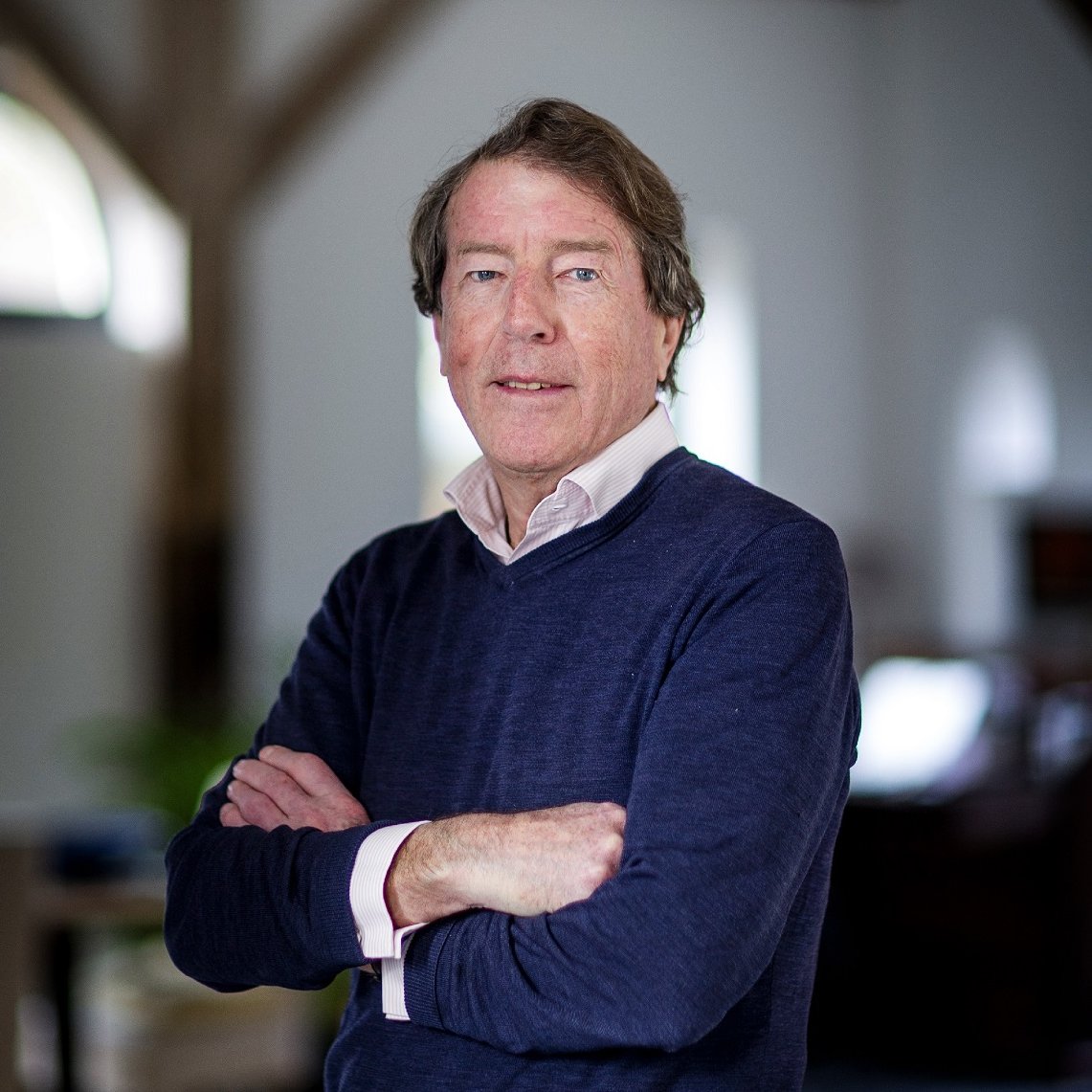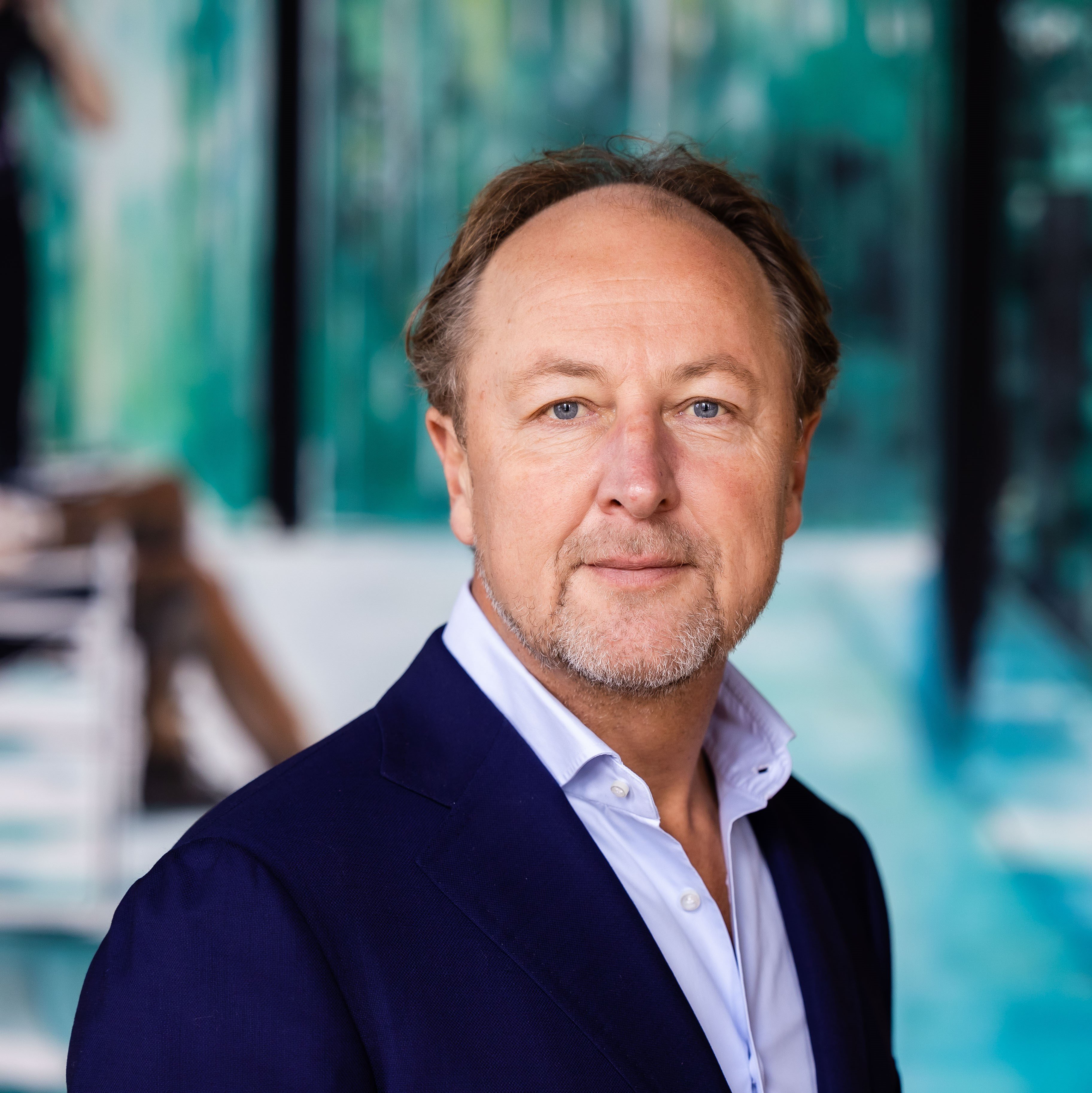‘Contributing has a huge impact’
In the Netherlands, we may be willing to donate to good causes or museums, but not yet to our alma mater. This culture of donation needs to develop, argue alumni Menno Antal and Michiel Westermann. As the initiators of the TU Delft Excellence Fund, they put their money where their mouth is.
Both have fond memories of their time in Delft as students and study association members. But something was missing. “At TU Delft, I learnt analytical thinking and had a lot of fun as an active DSC member. But the degree programme was so technical that I considered also doing Law in order to widen my perspective”, says Michiel Westermann. Antal agrees: “In my day, the programme was also very academic and dry, which can be boring if you have a commercial disposition.” That is why both of them topped off their engineering degrees with MBAs. “That taught me how a business works”, says Antal. While working at 3i, Antal was often in Silicon Valley. “I saw the success of the collaboration between universities, students and alumni and found it very inspiring. I wondered if we could do something similar in the Netherlands.”
Since then, a lot has changed in Delft: “When you look at RoboValley, YesDelft or QuTech now, there’s a world of difference. When I see all the possibilities offered to my son, a third-year Physics student, I’m almost jealous.” But there is still something missing: a culture of donation like that in the Anglo-Saxon world, where such universities as those of Oxford, Cambridge or Yale raise billions in donations from alumni. Westermann: “Here, many people feel that funding education and research is purely the government’s job. But innovation really matters to ‘the Netherlands plc’ and so to all of us. As a business or individual, you have an obligation to contribute if you can.”
Top-level academics required
Under the leadership of Rector Magnificus/President Tim van der Hagen, a lot of work is being done in Delft to develop a Silicon-Valley style innovation ecosystem, but the main problem is attracting talent. “If we want Delft to be a world leader, we need top-level academics, because they in turn attract talented students, researchers, grants and international companies. That’s the only way that kind of ecosystem will work, and the same applies to the quality of start-ups. Sadly, there is insufficient money to attract such people, because government funding is not keeping pace with increasing student numbers”, Antal says.
Westermann: “Top-level academics can justifiably set their own requirements. It’s not about personal gain, but about equipment, labs and doctoral candidates, the preconditions for top-level research. In other countries, it’s totally normal for them to get some kind of starting capital for that.”
Donations
To make that possible at TU Delft, the TU Delft Excellence Fund was established. It happened in a typically Delft way: “Normally, you start by building up a relationship – but we asked for a hefty donation from the get-go”, says Antal. The strategy proved successful: the first three professors have been recruited thanks to donations from the 38 founders of the fund. “They’re an amazing group of alumni with their own special dynamism. Together, we also organised several fun events, such as ‘Meet the Scientist’ or ‘Meet the Start-ups’. We’re still in the pioneering phase and hope to double the number of founders this year”, says Antal. “TU Delft is among the world’s best in several research areas and we want more from these fields. We’re happy to invest our energy in them.”
The aim is for it to become totally normal for alumni to donate to their alma mater: “All alumni should give something as thanks for what you gained in Delft, because you benefit from that for the rest of your life. Even if it’s initially just 25 or 50 euro per year”, Antal says. Westermann: “Four out of five alumni that I speak to only have contact through their study or student association. I’d advise everyone to take a closer look at what’s really happening at TU Delft. Technology has become part of our daily life, which makes it incredibly socially relevant. Delft is a world player in the development of that. If you donate money to that, it has huge impact.”
Team up with Excellence
The TU Delft Excellence Fund supports the TU Delft excellence strategy based on the three pillars of Research, Education and Valorisation, which together form the TU Delft ecosystem. In this first phase, the Excellence Fund is focusing on alumni and friends of TU Delft who are considering a substantial donation. Donors become members of the Delft Leaders Programme, which focuses on knowledge, experience and community. We are working together to make an impact for a better society, with Delft technology as an important engine of the Dutch economy. For more information: universiteitsfondsdelft.nl/excellencefund or excellencefund@tudelft.nl
Founders TU Delft Excellence Fund
Menno Antal, Gert Jan van der Hoeven, Tijo Collot d’Escury, Marc Schuuring, Richard Kraaijeveld van Hemert en Paul Nederlof; VandeGrijp Holding, Hans van Ierland, Folkert Schukken en KOO Siu-Ling, Serge Kremer, Chris de Ruyter van Steveninck en Marlene Sybrandy, Frans Haafkens, Gijs Dullaert en Estelle Loyson, Michiel Westermann en Jomien Westermann-Buitenhuis, Jeroen Hegge, Michiel Kotting, Bas Meeuwissen, Daan van Helsdingen, Mickey Huibregtsen, Kristiaan Nieuwenburg, Godfried van Lanschot, Michael Wisbrun, Gert Jan Hubers, Richard Blickman, Joost Pâques; Paques Technology, Brian Joseph, Sven Smit, Harry Dolman, Maikel Lobbezoo, Hugo van der Goes, Benno van Dongen, Freek de Bruijne, Wieger Wiegersma, Otto Staleman, Joris Heerkens, Bastiaan Soeteman, Peter Spaans, Frederik Nieuwenhuys, Ed van Dijk, Stepan Breedveld en Annika Breedveld-Hofman.

